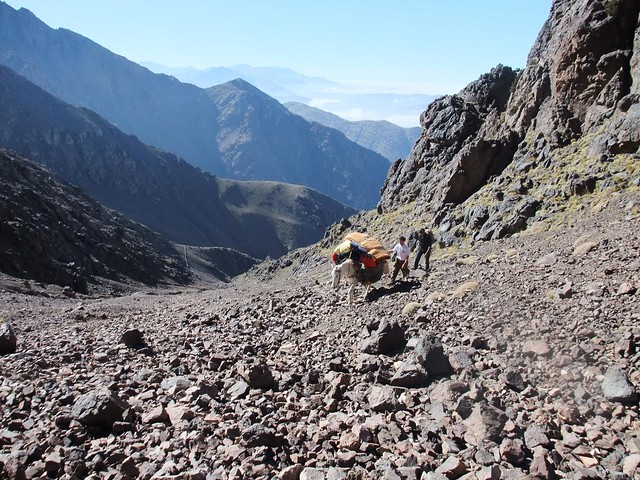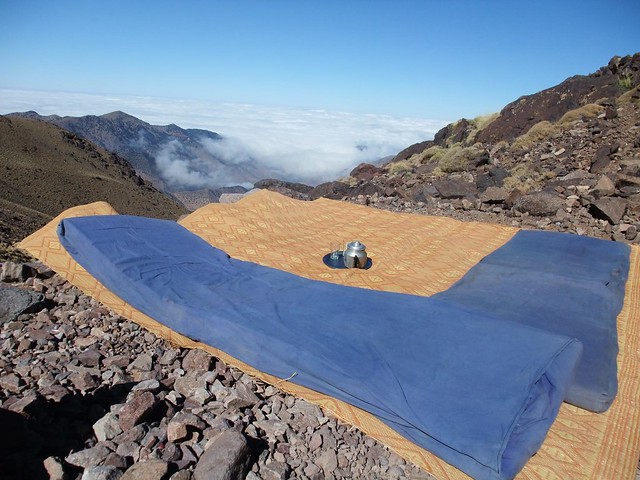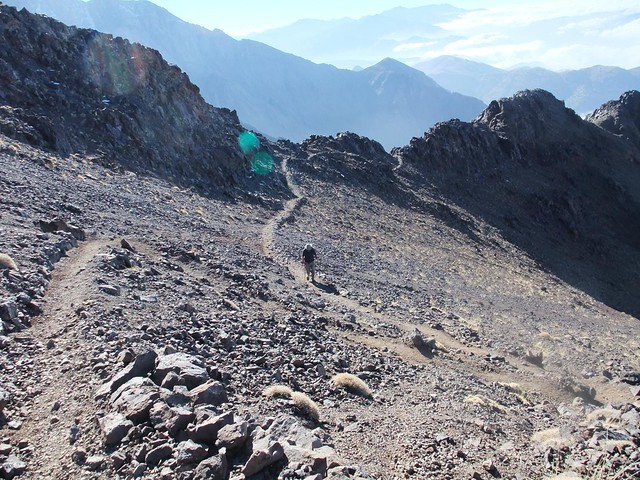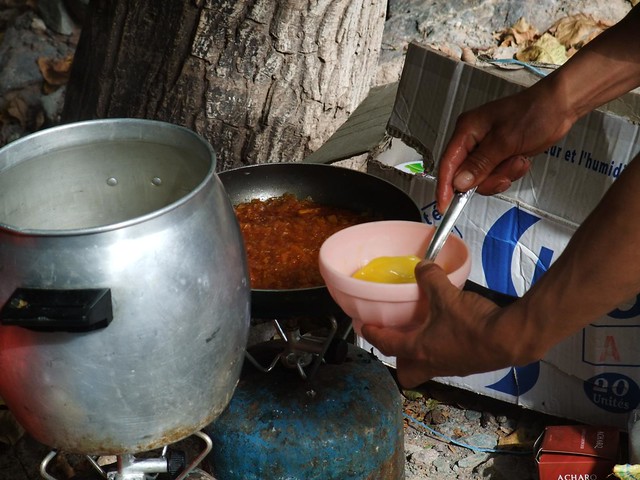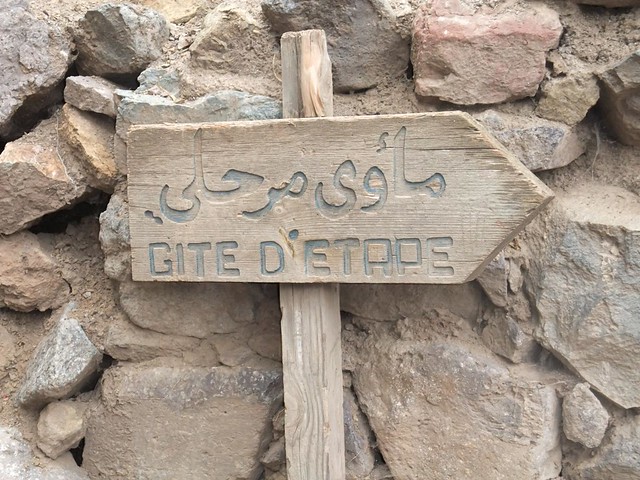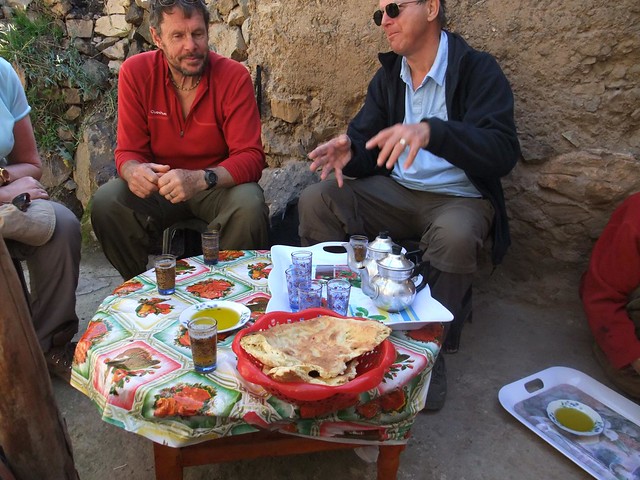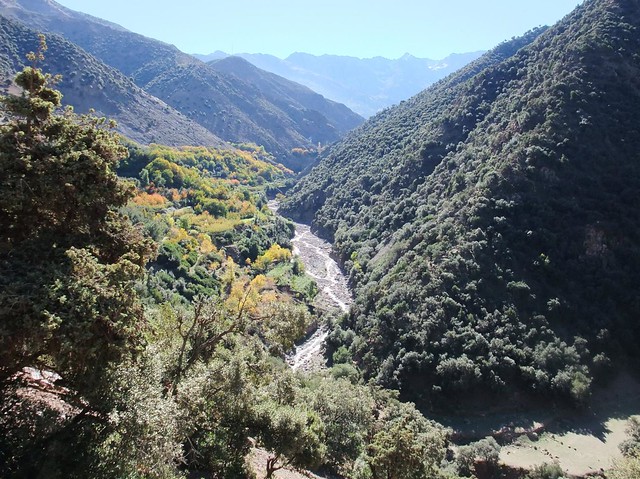Our take: three day Atlas Mountains trek
The days of travel agents are numbered, or so the press would have you believe. And they are probably right, if they are referring to the the traditional image of barely travelled high street reps whose knowledge of a destination is limited to what is in written down in the brochure in front of them. At Tourdust, we do things differently. The same person who helps plan your trek is the same person who decides which treks to run, plans itineraries with the local guides and of course who does what is only right and proper, gets out there and tests it for themselves. This is a trip report from a three day trek by our East Africa and Moroccan trekking specialist Ben;
50 switchbacks lays before us, up a steeper incline than I’d call healthy. It is hard to see how we will make it up the 500m ascent of loose scree, never mind the mule, laden with our gear and assorted pots, pans and victuals. So far the trekking has been relatively easy, but this is something else.
We’d just finished perhaps one of the best picnic lunches ever, taken on a Berber rug, perched like a flying carpet above an uninterrupted view of the peaks of the Atlas Mountains. Our trek chef, Mohamed had veritably skipped past us up a steep incline earlier this morning to get there first. With the mint tea served, he set about producing yet another set piece lunch. A crisp fresh Moroccan salad, an unctuous tagine of lamb and tomato stewed in a vast multitude of spices and topped with fried eggs. I’d seen something similar before in a Rick Stein.
After every great picnic is a great climb and the climb up to Aguelzim pass was as tough as it looks from afar. Inevitably, with a steep incline of loose scree, every two steps forward is met with one slipped back. Not that it does anything to deter a fully laden mule and middle aged chef who for the second time that day powered past us at an astonishing rate. Wounded egos aside, the views are tremendous, I’ve often reflected that the serenity and lack of occasion that a pass or ridge demands is far preferable to the swagger and crowds of the big peaks. This pass played true to form, a dramatic saddle with views over wave upon wave of peaks, the Sahara Desert and Toubkal massif. Amongst a trek of many highlights, this was undoubtedly a defining moment.
We’d set out a couple of days beforehand from Marrakech. The drive to the mountains is relatively short, but long enough to warrant a quick stop for yet another cup of mint tea at a café in Asnil. The subject of mint tea was to become a recurrent theme as it accompanied breakfast, lunch and dinner and a number of other stops in between. Served straight up, it contains such a massive dose of sugar that it’s a wonder that most Moroccans still have teeth to speak of. I tend to ask for it without sugar, which normally means only a couple of tablespoons are added to the pot rather than the customary skip load. Ignoring the mild concerns about glucose intake, the food and drink was superb, easily besting anything I’ve eaten in Marrakech. The breakfasts were simple (bread, jams, tea) but lunch and dinner always fantastic. Without doubt the best I’ve had on trek anywhere in the world.
We followed a route from the Imlil Valley over to Tinzert. The terrain at the lower altitudes is positively Mediterranean in feel with dry scrub broken up by gnarled old Juniper trees and a profusion of thyme and rosemary growing close to the red earth. Our first night was spent in a very simple village gite, with four salons set around a central non-descript courtyard, an uninviting but clean bathroom and a room for our cook to prepare meals. The salons were part sitting rooms, part dining rooms and part bedrooms. Surrounded on all walls by soft seating, we spread out our sleeping bags after dinner and got a great night’s sleep. The view at breakfast made it all worthwhile, as we watched the sun slowly light up over the mountains across the valley.
The trek that day up through the Azzaden Valley is special. Set against the barren valley walls the valley floor is awash with vibrant colour, as the groves of Walnut trees, the rushing mountain stream and grassy banks compete for attention with the mountain tops twinkling in the distance. We stopped for a mint tea at a home in Ait Aissa and were treated to delicious freshly baked bread accompanied by home produced olive oil and salt. The stop was unnecessary, as lunch was only an hour away, but boy was it worthwhile, a happy stomach is a happy trekker.
It would be remiss not to mention the lives of the villagers whose homes we passed. Life in the small Atlas villages is very much still a subsistence game. Families tend flocks of sheep and usually have a grove of walnut trees somewhere in the valley, but evidence of poverty is rife. Electricity and mobile phones may have reached the mountains, but clean running water and decent refuse systems have not. Sensitive Western eyes will be shocked by the discarded plastics and litter that is woven into the fabric of paths and buildings and disturbed by the sight of livestock and people sharing the same less than clean water source for drinking and washing.
What does come as a pleasant surprise is the lack of begging, which is very much frowned up by the guides and village communities. With any visit to the Atlas Mountains though, the biggest shock is in returning to civilisation. In contrast to the alcohol free, deeply conservative mountains, the alcohol infused nightlife, fine dining and boutique riads of Marrakech can be quite a shock.
